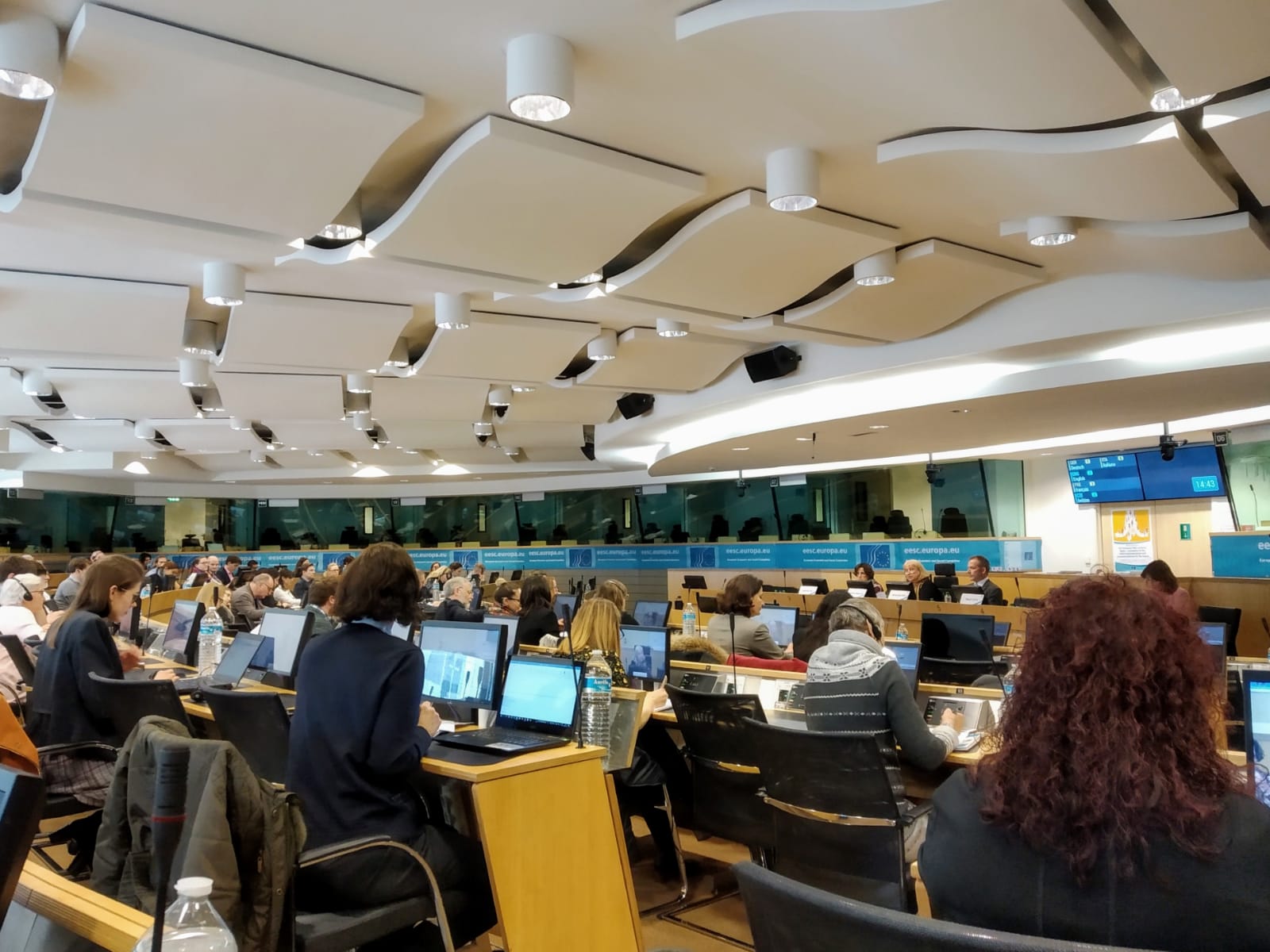On 28 March, the European Economic and Social Committee (EESC) organised a public hearing to assess the legislative and non-legislative measures taken from 2017, identify gaps and propose new measures, including in the context of the European Semester.
In fact, in November 2017, the European institutions announced that the European Pillar of Social Rights (EPSR) would be an important tool for promoting upwards convergence, in both economic and social terms. The EESC is now starting to evaluate the implementation of this initiative.
Mr Bernd Schluter, EESC Rapporteur, highlighted how the EPSR is of fundamental importance because it allows all European citizens to assert their rights. However, this means asking all the parties involved to take a step forward by actively contributing to its implementation. It is therefore of fundamental importance to find the right balance between the role of the EU and the national systems.
Ms Cinzia Del Rio, EESC Rapporteurexplained that the EPSR focuses on three themes: equal opportunities, fair working conditions and social integration. The EU has adopted several instruments, although much still need to be done at national level, especially by monitoring legislative development in individual Member States. In fact, the common goal is the harmonisation of standards for a social as well as for an economic convergence.
Ms Raquel Lucas, Head of Unit “Coordination” at DG EMPL, underlined how the pillar does not intend to bring old policies back to life but to provide rights to citizens and to the new social and economic reality by creating a resilient economy. In this context, continuous dialogue with citizens and civil society is fundamental. The proclamation of the EPSR has been and continues to be a political message for the entire world: in the EU there are shared social values and an equal society. This is the basis of the 20 EPSR key principles that everyone must strive to achieve. These must be the basis for any reform both at EU and national level; they must be used as a compass to improve the standard of living and the working conditions of millions of citizens. Social policies must be at the centre of all other policies and of any kind of reform. Hence, this can only happen if there are appropriate legislative measures and adequate national support from all Member States. According to her, the first important instrument to monitor and implement social reforms is the European Semester. A second important instrument is the Multiannual financial framework to guarantee adequate funds.
Mr Sebastiano Sabato, Policy Officer at European Social Observatory,analysed the effects that the EPSR start to have. In fact, in the following reports it is possible to investigate the effect that the EPSR has had on various themes: 2019 European Semester Annual Growth Survey,2018 Joint Employment Reportand 2018 Country Reports. Moreover, analyses were carried out on CSRs and in 2017, after the proclamation of the EPSR, there was a sharp increase of them with a peak between 2017 and 2018. In fact, in the cycle of the European Semester of 2018 we can see a so-called “pillar effect”. Although these excellent results, still remain many limits, first of all the lack of funds to implement certain reforms.
As Ms Christiane Winberg Director of European and International Affairs also pointed out that we need more collaboration with the European Commission to make the best use of the European Semester and really harmonise the best practices at European level, not transforming the EPSR in an obstacle for some countries but as a stepping stone for each Member State.
Ms Amana Ferro, from EAPN, stressed the fact that EPSR has been a real turning point in the fight against social exclusion and poverty prevention because it brought attention to the need for social reforms. It is therefore important a European coordination in achieving the EPSR key principles, otherwise each Member State goes in a different direction and it is more difficult to reach a common goal. In this context, dialogue with civil society is fundamental and too little importance is given to this factor. Civil society and those operating in the sector of aid to the most deprived should be included in the social parts of EPSR because the collective bargaining alone cannot be a comprehensive instrument. She believed that Europe needs a new paradigm that recognises the importance of social rights and of a roadmap for implementing the objectives of the Pillar in the years to come.
Ms Katja Reuter, Policy & Advocacy Officer at the Social Platform emphasised the fundamental role of civil society because it provides up-to-date and competent information on existing challenges. This consultation with civil society is not always structured and so dialogue should become more transparent and regular.
Ms Marie-Anne Paraskevas, DG EMPL, stressed the importance of implementing the EPSR in the new ESF+. It will integrate the current ESF, Youth Employment Initiative, FEAD, EaSI and the EU Health programme. The ESF+ will concentrate on increasing focus on social inclusion with a concrete commitment to supporting poverty, specific attention to young people in disadvantage conditions and to outermost regions with obvious needs regarding inclusion.
To conclude, Ms Rebekah Smith, Deputy Director in the Social Affairs Department of BUSINESSEUROPE, highlighted how, social partners, also thanks to the Social Scoreboard,are involved in the implementation of the EPSR even if more should be done to improve their engagement.Unfortunately, results show that there are not the same results in all the European regions regarding social cohesion, inclusion, labour market’s conditions and support for those most in need. She believed that an enhanced open method of coordination at European level needs to be improved in order to include all the social partners involved.




